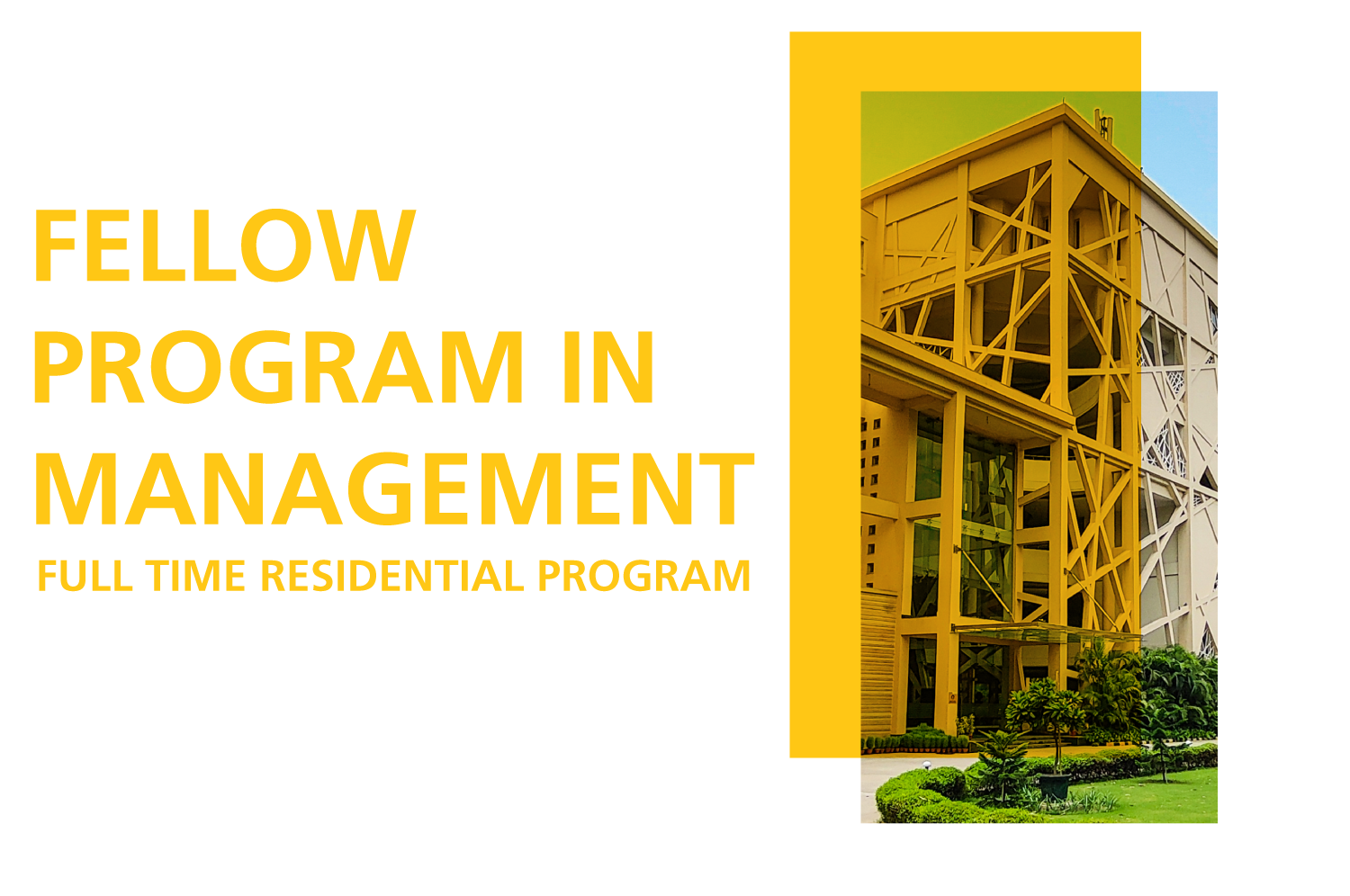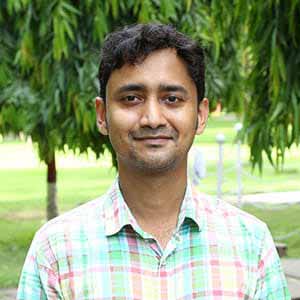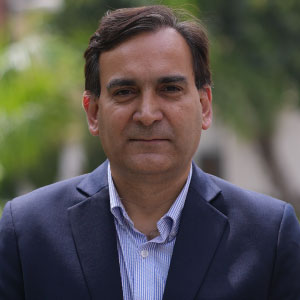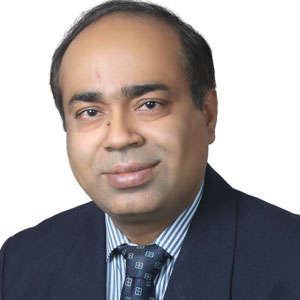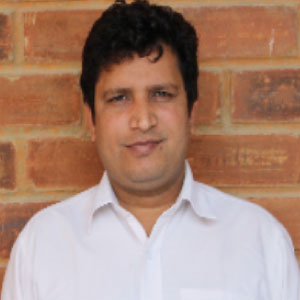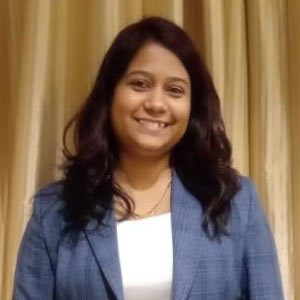
Reach us for more details
Program Highlights
The Fellow Program in Management (FPM) at IMT Ghaziabad is a full-time doctoral program designed for students, working executives and academicians with strong academic orientation, to undertake rigorous and original research. The program aims to develop outstanding research scholars for careers in academia, research, and consulting for the industry, government and social sector. FPM at IMT Ghaziabad is a four-year program during which scholars will undergo rigorous coursework comprising management courses, area specific courses and advanced courses. FPM program at IMT Ghaziabad is designed to give scholars a meaningful exposure to contemporary issues.

AACSB and NBA accredited institute
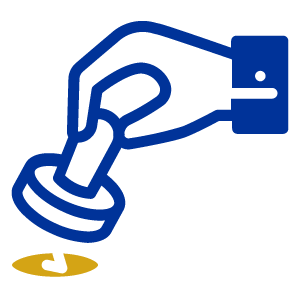
AICTE approved full time doctoral program

Experiential research training of international standards

Opportunity for interdisciplinary learnings and research

Duration of the program is 4-5 years
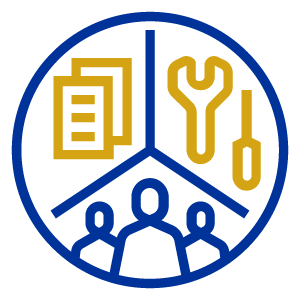
Competitive stipend of INR 60,000 Per month

Full time residential program

Prepares individuals for research, teaching and consulting jobs in the field management
Areas of specialisations









Faculty at IMT G
IMT Ghaziabad holds the rich diversity in the backgrounds of academia as well as corporate experience of faculty which further install in the students a continuous desire to achieve excellence. IMT Ghaziabad has 67 faculty members on its full time role including 06 Adjunct faculty members. 44 faculty members have industry experience, of which 05 Adjunct faculty members have vast experience of top positions in reputed companies. 54 faculty members have experience with academics prior to joining IMT Ghaziabad. 60 faculty members are PhD from top institutes/universities of the country and outside India including 19 from IITs/IIMs.
IMT Ghaziabad provides an excellent ecosystem for research. Generation and dissemination of knowledge is the primary focus of faculty at IMT Ghaziabad. During the last five and half years, our faculty members published 471 papers in national/ international refereed journals, 127 case studies, 62 articles in magazines/ newspapers etc. and 32 book chapters in edited volumes brought out by reputed publishers. Our faculty have authored 01 text book and 01 edited book and 11 other edited volumes, research and adapted books.
IMT Ghaziabad faculty members have presented 239 papers at various conferences and other academic events. They have won 44 awards for various types of contributions in Research, Teaching, etc. IMT Ghaziabad has its interdisciplinary bi-annual research journal, ‘Paradigm’, published by Sage, which is considered as a reputed journal in India and abroad.
RESEARCH AND PUBLICATION
- Marketing Management
- Operations Management
- Human Resource Management
- Financial Management
- Business Analytics
- Economic Environment and Policy
- Information Technology Management
- Strategy, Innovation and Entrepreneurship
- Business Communication
| Faculty | ABDC Classification | Reference |
| Imran Khan | A* | Khan, I., Fatma, M., Shamim, A., Joshi, Y., & Rahman, Z. (2020). Gender, loyalty card membership, age, and critical incident recovery: Do they moderate experience-loyalty relationship?. International Journal of Hospitality Management, 89(August), 1-10. |
| Imran Khan | A* | Rather, R. A., Rasul, T., Khan, H., & Khan, I. (2024). Unveiling the dynamics between consumer brand engagement, experience, and relationship quality towards luxury hotel brands: Moderating investigation of brand reputation. International Journal of Hospitality Management, 116(January), 1-13. |
| Juhi Gahlot Sarkar | A* | Sarkar, A., Sarkar, J. G., & Sreejesh, S. (2021). Managing customers’ undesirable responses towards hospitality service brands during service failure: The moderating role of other customer perception. International Journal of Hospitality Management, 94(April), 1-14. |
| Juhi Gahlot Sarkar | A* | Ranjan, J., Foropon, C., Sarkar, J. G., & Sarkar, A. (2022). Corrigendum to “Big data analytics in building the competitive intelligence of organizations” [International Journal of Information Management 56 (2021) 102231]. International Journal of Information Management, 65(August), 1-14. |
| Juhi Gahlot Sarkar | A* | Sarkar, J. G., Sarkar, A., & Sreejesh, S. (2022). Prosumption through advergames: leveraging on advergame format and reward elements to create a sacred brand. European Journal of Marketing, 56(10), 2649-2676. |
| Rakesh Kumar Singh | A* | Kalra, A., Agnihotri, R., Singh, R. K., Puri, S., & Kumar, N. (2021). Assessing the drivers and outcomes of behavioral self-leadership. European Journal of Marketing, 55(4), 1227-1257. |
| Rakesh Kumar Singh | A* | Itani, O. S., Kalra, A., Chaker, N. N., & Singh, R. K. (2021). “Because you are a part of me”: Assessing the effects of salesperson social media use on job outcomes and the moderating roles of moral identity and gender. Industrial Marketing Management, 98(October), 283-298. |
| Rakesh Kumar Singh | A* | Kalra, A., Chaker, N. N., Singh, R. K., Itani, O. S., & Agnihotri, R. (2023). A desire for success: Exploring the roles of personal and job resources in determining the outcomes of salesperson social media use. Industrial Marketing Management, 113(August), 202-214. |
| Sita Mishra | A* | Mishra, S., & Malhotra, G. (2021). The gamification of in-game advertising: Examining the role of psychological ownership and advertisement intrusiveness. International Journal of Information Management, 61(December), 1-13. |
| Surajit Bag | A* | Bag, S., Gupta, S., Kumar, A., & Sivarajah, U. (2021). An integrated artificial intelligence framework for knowledge creation and B2B marketing rational decision making for improving firm performance. Industrial Marketing Management, 92(January), 178-189. |
| Surajit Bag | A* | Bag, S., Gupta, S., Srivastava, G., Sivarajah, U., & Kumar, A. (2022). Impact of ethics training and audits on the relationship quality of business-to-business partners in sharing economy. Industrial Marketing Management, 107(November), 120–133. |
| Surajit Bag | A* | Bag, S., Rahman, M. S., Rogers, H., Srivastava, G., & Pretorius, J. H. (2023). Climate change adaptation and disaster risk reduction in the garment industry supply chain network. Transportation Research Part E: Logistics and Transportation Review, 171(March), 1-22. |
| Tripti Ghosh Sharma | A* | Sharma, T. G., Gupta, M., Thomas, V. C., & Sivakumaran, B. (2024). Airline Social Media Recovery Satisfaction: Has COVID Changed Everything?. Journal of Travel Research, Vol. Published Online Issue Published Online. http://doi.org/10.1177/00472875241228498 |
| Faculty | ABDC Classification | Reference |
| Gurmeet Singh | A* | Biswas, I., Singh, G., Tiwari, S., Choi, T., & Pethe, S. (2024). Managing Industry 4.0 supply chains with innovative and traditional products: contract cessation points and value of information. European Journal of Operational Research, Vol. Published Online Issue Published Online. http://doi.org/10.1016/j.ejor.2024.01.047 |
| Kaustov Chakraborty | A | Adnan, Z. H., Chakraborty, K., Bag, S., & Wu, J. S. (2023). Pricing and green investment strategies for electric vehicle supply chain in a competitive market under different channel leadership. Annals of Operations Research, Vol. Published Online Issue Published Online. http://doi.org/10.1007/s10479-023-05523-y |
| Kaustov Chakraborty | A | Singh, S., Chakraborty, K., Pratap, S., Singh, M., & Zhou, F. (2024). Analysing factors influencing the adoption of blockchain technology in maritime freight enterprises. Enterprise Information Systems, Vol. Published Online Issue Published Online. http://doi.org/10.1080/17517575.2024.2326676 |
| Manjeet Kharub | A | Gupta, H., Kharub, M., Shreshth, K., Kumar, A., Huisingh, D., & Kumar, A. (2023). Evaluation of strategies to manage risks in smart, sustainable agri-logistics sector: A Bayesian-based group decision-making approach. Business Strategy and the Environment, 32(7), 4335-4359. |
| Rahul Mishra | A | Mishra, R., Raut, R. D., Kumar, M., Naik, B. K., & Luthra, S. (2023). Renewable energy technology adoption in building a sustainable circular supply chain and managing renewable energy-related risk. Annals of Operations Research, Vol. Published Online Issue Published Online. http://doi.org/10.1007/s10479-023-05476-2 |
| Ratri Parida | A | Kaur, J., Lavuri, R., Parida, R., & Singh, S. V. (2023). Exploring the Impact of Gamification Elements in Brand Apps on the Purchase Intention of Consumers. Journal of Global Information Management, 31(1), 1-30. |
| Ratri Parida | A | Akram, U., Lavuri, R., Ansari, A. R., Parida, R., & Junaid, M. (2023). Havocs of social media fake news! Analysing the effect of credibility, trustworthiness, and self-efficacy on consumer’s buying intentions. Journal of Strategic Marketing, Vol. Published Online Issue Published Online. http://doi.org/10.1080/0965254X.2023.2253801 |
| Faculty | Classification | Reference |
| Bindu Gupta | A* | Gupta, B., Bhardwaj, S., Srivastava, S., & Madan, P. (2024). Peers’ unethical behavior and employees’ discretionary behavior: Role of employees’ duty orientation. International Journal of Hospitality Management, 119(May), 1-12. |
| Bindu Gupta | A | Gupta, B., Wang, K. Y., & Cai, W. (2021). Interactional justice and willingness to share tacit knowledge: perceived cost as a mediator, and respectful engagement as moderator. Personnel Review, 50(2), 478-497. |
| Bindu Gupta | A | Gupta, B., Singh, R. K., Puri, S., & Rawat, P. S. (2022). Assessing the antecedents and outcomes of salesperson’s psychological capital. Journal of Business & Industrial Marketing, 37(12), 2544-2558. |
| Bindu Gupta | A | Dhoopar, A., Sihag, P., & Gupta, B. (2023). Antecedents and measures of organizational effectiveness: A systematic review of literature. Human Resource Management Review, 33(1), 1-19. |
| Nidhi Yadav | A | Bhaskar, A. U., Mishra, B., Yadav, N., & Sinha, P. (2023). Who uses deceptive impression management to succeed at job interviews? The role of ethical ideologies and work locus of control. International Journal of Manpower, 44(3), 453-469. |
| Richa Saxena | A* | Briscoe, J. P., …Saxena, R.,… Zikic, J. (2021). Here, there, & everywhere: Development and validation of a cross-culturally representative measure of subjective career success. Journal of Vocational Behavior, 130(October), 1-23. |
| Subhendu Patnaik | A | Patnaik, S., Mishra, U. S., & Mishra, B. B. (2022). Can psychological capital reduce stress and job insecurity? An experimental examination with indian evidence. Asia Pacific Journal of Management, 39, 1071-1096. http://doi.org/10.1007/s10490-021-09761-1 |
| Subhendu Patnaik | A | Patnaik, S., Mishra, U. S., & Mishra, B. B. (2023). Perceived Organizational Support and Performance: Moderated Mediation Model of Psychological Capital and Organizational Justice – Evidence from India. Management and Organization Review, 19(4), 743-770. |
| Swati Ghulyani | A | Tripathi, V. R., Popli, M., Ghulyani, S., Desai, S., & Gaur, A. (2021). Knowledge creation practices at organizational boundaries: the role of ICT in sickle-cell care for tribal communities. Journal of Knowledge Management, 25(3), 595-617. |
| Faculty | ABDC Classification | Reference |
| Ashish Varma | A | Varma, A., & Sharma, A. (2024). Assessing the Impact of Accounting Analytic Capabilities on Firm Performance. Journal of Computer Information Systems, Vol. Published Online Issue Published Online. http://doi.org/10.1080/08874417.2024.2329137 |
| Barnali Chaklader | A | Chaklader, B., Gupta, B. B., & Panigrahi, P. K. (2023). Analyzing the progress of FINTECH-companies and their integration with new technologies for innovation and entrepreneurship. Journal of Business Research, 161(June), 1-11. |
| Hardeep Singh Mundi | A | Mundi, H. S., & Vashisht, S. (2023). Cognitive abilities and financial resilience: evidence from an emerging market. International Journal of Bank Marketing, 41(5), 1010-1036. |
| Harsimran Sandhu | A | Sandhu, H., & Deb, S. G. (2023). Do changes in distributors’ incentive structure drive mutual fund flows?. International Journal of Bank Marketing, 41(3), 508-526. |
| Prachi Jain | A* | Jain, P., Maitra, D., & Kang, S. H. (2023). Oil price and the automobile industry: Dynamic connectedness and portfolio implications with downside risk. Energy Economics, 119(March), 1-31. |
| Prachi Jain | A | Jain, P., & Maitra, D. (2023). Is there commodity connectedness across investment horizons? Evidence using news-based uncertainty indices. Economics Letters, 225(April), 1-5. |
| Prachi Jain | A | Jain, P., & Maitra, D. (2023). Risk implications of dependence in the commodities: A copula-based analysis. Global Finance Journal, 57(August), 1-22. |
| Prachi Jain | A | Jain, P., Maitra, D., McIver, R. P., & Kang, S. H. (2023). Quantile dependencies and connectedness between stock and precious metals markets. Journal of Commodity Markets, 30(June), 1-29. |
| Prachi Jain | A | Biswas, P., Jain, P., & Maitra, D. (2024). Are shocks in the stock markets driven by commodity markets? Evidence from Russia-Ukraine war. Journal of Commodity Markets, Vol. Published Online Issue Published Online. http://doi.org/10.1016/j.jcomm.2024.100387 |
| Ritesh Pandey | A | Agarwal, S., Pandey, R., Kumar, S., Lim, W. M., Agarwal, P. K., & Malik, A. (2023). Workplace incivility: A retrospective review and future research agenda. Safety Science, 158(February), 1-19. |
| Faculty | ABDC Classification | Reference |
| Santosh Kumar Shrivastav | A | Jadiyappa, N., Shrivastav, S. K., & Ghalke, A. (2023). Social responsibility, moral hazard, and collateral requirement: Evidence from a quasi-natural experiment in India. International Review of Finance, 23(1), 27-36. |
| Santosh Kumar Shrivastav | A | Shrivastav, S. K. (2023). Recent trends in supply chain management of business-to-business firms: a review and future research directions. Journal of Business & Industrial Marketing, 38(12), 2673-2693. |
| Santosh Kumar Shrivastav | A | Shrivastav, S. K., & Bag, S. (2023). Recent Developments on Flexible Manufacturing in the Digital Era: A Review and Future Research Directions. Global Journal of Flexible Systems Management, 24(4), 483-516. |
| Santosh Kumar Shrivastav | A | Bag, S., Rahman, M. S., Ghai, S., Shrivastav, S. K., Singh, R. K., & Mishra, R. (2024). Unveiling the impact of carbon-neutral policies on vital resources in Industry 4.0 driven smart manufacturing: A data-driven investigation. Computers & Industrial Engineering, 187(January). http://doi.org/10.1016/j.cie.2023.109798 |
| Santosh Kumar Shrivastav | A | Bag, S., Rahman, M. S., Routray, S., Shrivastav, S. K., & Agrawal, S. (2024). Exploring the Potential of Blockchain-Enabled Smart Contracts for Achieving Net Zero Emissions: An Empirical Study. Business Strategy and the Environment, Vol. Published Online Issue Published Online. http://doi.org/10.1002/bse.3691 |
| Santosh Kumar Shrivastav | A | Bag, S., Rahman, M. S., Sharma, J., Chiarini, A., Shrivastav, S. K., & Gupta, S. (2024). Building digital technology and innovative lean management capabilities for enhancing operational performance: an empirical study. Production Planning & Control: The Management of Operations, Vol. Published Online Issue Published Online. http://doi.org/10.1080/09537287.2024.2327344 |
| Santosh Kumar Shrivastav | A | Shrivastav, S. K., Routray, S., Bag, S., Gupta, S., & Zhang, J. Z. (2024). Exploring the Potential of Large Language Models in Supply Chain Management: A Study Using Big Data. Journal of Global Information Management, 32(1), 1-29. |
| Santosh Kumar Shrivastav | A | Shrivastav, S. K., & Bag, S. (Accepted). Blockchain Technology in Circular Economy: Unpacking the Potential Issues and Critical Echoes Through Data Triangulation and Natural Language Processing. Business Strategy and the Environment, Accepted(Accepted). http://doi.org/ |
| Sapna Tyagi | A | Paul, J., …Tyagi, S.,… Wirtz, J. (2024). Digital transformation: A multidisciplinary perspective and future research agenda. International Journal of Consumer Studies, 48(2), 1-28. |
| Faculty | ABDC Classification | Reference |
| Amrita Kamalini Bhattacharyya | A | Mukherjee, V., & Bhattacharyya, A. K. (2021). Market competition, relocation and lobbying. Economics & Politics, 33(2), 343-356. |
| Amrita Kamalini Bhattacharyya | B | Sinha, S. K., Mukhopadhyay, S., Upadhyay, P., Dwivedi, Y. K., Bhattacharyya, S., Paul, M., & Bhattacharyya, A. K. (2023). Challenges and opportunities in IT transformation of public service delivery: case of India Post. Transforming Government: People, Process and Policy, 17(1), 134-146. |
| Kasturi Das | B | Bandyopadhyay, K. R., Das, K., & Mahajan, R. (2022). Addressing diversity, equity and inclusion (DEI) through service learning in management education: insights from India. International Journal of Educational Management, 36(4), 470-494. |
| Kasturi Das | B | Bandyopadhyay, K. R., & Das, K. (2023). Navigating ESG Disclosure and Ratings Conundrum in India: Reflections on the SEBI’s Proposed Framework. Economic & Political Weekly, 58(25-26), 57-64. |
| Manas Paul | A | Kumar, A., Paul, M., & Upadhyay, P. (2021). From Physical Food Security to Digital Food Security. Delivering value through blockchain. Scandinavian Journal of Information Systems, 33(2), 137-180. |
| Manas Paul | B | Paul, M., Upadhyay, P., & Dwivedi, Y. K. (2020). Roadmap to digitalisation of an emerging economy: a viewpoint. Transforming Government: People, Process and Policy, 14(3), 401-415. |
| Manas Paul | B | Shah, A. A., Paul, M., Bhanja, N., & Dar, A. B. (2021). Dynamics of connectedness across crude oil, precious metals and exchange rate: Evidence from time and frequency domains. Resources Policy, 73(October), 1-19. |
| Manas Paul | B | Farooq, U., Paul, M., & Dar, A. B. (2023). On the nexus between growth and disaggregated ecological footprints-empirical evidence from India. Journal of Environmental Planning and Management, Vol. Published Online Issue Published Online. http://doi.org/10.1080/09640568.2023.2171279 |
| Manas Paul | B | Sinha, S. K., Mukhopadhyay, S., Upadhyay, P., Dwivedi, Y. K., Bhattacharyya, S., Paul, M., & Bhattacharyya, A. K. (2023). Challenges and opportunities in IT transformation of public service delivery: case of India Post. Transforming Government: People, Process and Policy, 17(1), 134-146. |
| Manas Paul | B | Paul, M., Bhanja, N., & Dar, A. B. (2023). On the similarities between precious metals, precious metal stocks and equities – International evidence for gold and silver. Resources Policy, 83(June), 1-10. |
| Ratna Vadra | B | Vadra, R. (2022). Mint Next Emerging Market. Academy of Marketing Studies Journal, 26(1 (Special Issue)), 1-13. |
| Ratna Vadra | B | Vadra, R. (2022). SME Sector in India: With Special Focus on Aligarh Lock Industry. Academy of Marketing Studies Journal, 26(1), 1-6. |
| Subhajit Bhattacharyya | B | Sinha, S. K., Mukhopadhyay, S., Upadhyay, P., Dwivedi, Y. K., Bhattacharyya, S., Paul, M., & Bhattacharyya, A. K. (2023). Challenges and opportunities in IT transformation of public service delivery: case of India Post. Transforming Government: People, Process and Policy, 17(1), 134-146. |
| Subhajit Bhattacharyya | B | Kumar, A., Shrivastav, S. K., & Bhattacharyya, S. (2023). Measuring strategic fit using big data analytics in the automotive supply chain: a data source triangulation-based research. International Journal of Productivity and Performance Management, 72(10), 2977-2999. |
| V. J. Sebastian | A | Gupta, R., Pandey, R., & Sebastian, V. J. (2021). International Entrepreneurial Orientation (IEO): A bibliometric overview of scholarly research. Journal of Business Research, 125(March), 74-88. |
| Faculty | ABDC Classification | Reference |
| Poonam Garg | A* | Garg, P., Gupta, B., Dzever, S., Sivarajah, U., & Kumar, V. (2020). Examining the Relationship between Social Media Analytics Practices and Business Performance in the Indian Retail and IT Industries: The Mediation Role of Customer Engagement. International Journal of Information Management, 52(June), 1-11. |
| Poonam Garg | A | Garg, P., Gupta, B., Chauhan, A. K., Sivarajah, U., Gupta, S., & Modgil, S. (2021). Measuring the Perceived Benefits of Implementing Blockchain Technology in the Banking Sector. Technological Forecasting & Social Change, 163(February), 1-18. |
| Poonam Garg | A | Garg, P., Gupta, B., Kapil, K. N., Sivarajah, U., & Gupta, S. (2023). Examining the relationship between blockchain capabilities and organizational performance in the Indian banking sector. Annals of Operations Research, Vol. Published Online Issue Published Online. http://doi.org/10.1007/s10479-023-05254-0 |
| Reema Khurana | A | Gupta, R., Khurana, R., & Prashaant, A. (2023). Open banking on the horizon: a scientometric analysis and research agenda. Electronic Commerce Research, Vol. Published Online Issue Published Online. http://doi.org/10.1007/s10660-023-09722-4 |
| Susmi Routray | A* | Choudhary, P. K., Routray, S., Upadhyay, P., & Pani, A. K. (2022). Adoption of enterprise mobile systems – An alternative theoretical perspective. International Journal of Information Management, 67(December), 1-14. |
| Susmi Routray | A | Bag, S., Rahman, M. S., Routray, S., Shrivastav, S. K., & Agrawal, S. (2024). Exploring the Potential of Blockchain-Enabled Smart Contracts for Achieving Net Zero Emissions: An Empirical Study. Business Strategy and the Environment, Vol. Published Online Issue Published Online. http://doi.org/10.1002/bse.3691 |
| Susmi Routray | A | Shrivastav, S. K., Routray, S., Bag, S., Gupta, S., & Zhang, J. Z. (2024). Exploring the Potential of Large Language Models in Supply Chain Management: A Study Using Big Data. Journal of Global Information Management, 32(1), 1-29. |
| Faculty | ABDC Classification | Reference |
| Amit Sareen | C | Sareen, A., & Pandey, S. (2020). Innovation in Knowledge Intensive Business Services: Does It Vary by Firm Age and Type. Empirical Economics Letters, 19(Special Issue). http://doi.org/ – |
| Amit Sareen | C | Sareen, A., & Sharma, S. (2022). Assessing Financial Distress and Predicting Stock Prices of Automotive Sector: Robustness of Altman Z-score. Vision: The Journal of Business Perspective, 26(1), 11-24. |
| Nivisha Singh | B | Singh, N., Pandey, R., Gupta, R., Biswas, B., & Gupta, S. (2022). Reverse knowledge transfer: making sense of two decades of academic research. VINE Journal of Information and Knowledge Management Systems, Vol. Published Online Issue Published Online. http://doi.org/10.1108/VJIKMS-08-2021-0155 |
| Shalini Rahul Tiwari | B | Mishra, S., Malhotra, G., & Tiwari, S. R. (2021). Moderating effect of cognitive conflict on the relationship between value consciousness and online shopping cart abandonment. The International Review of Retail, Distribution and Consumer Research, 31(5), 511-530. |
| Shalini Rahul Tiwari | B | Johann, M., Mishra, S., Malhotra, G., & Tiwari, S. R. (2022). Participation in active sport tourism: impact assessment of destination involvement and perceived risk. Journal of Sport & Tourism, 26(2), 101-123. |
| Shalini Rahul Tiwari | B | Mishra, S., Malhotra, G., Johann, M., & Tiwari, S. R. (2022). Motivations for participation in active sports tourism: a cross-national study. International Journal of Event and Festival Management, 13(1), 70-91. |
| Shalini Rahul Tiwari | C | Sharma, A., Tiwari, S. R., & Singh, G. (2022). I No Longer Carry Cash for Payments: Examining Millennials Intention to use Mobile Wallets. Manager – The British Journal of Administrative Management, 58(155), 89-103. |
| Shalini Rahul Tiwari | C | Tiwari, S. R., Jain, M., & Jain, N. (2022). Forecasting the Diffusion of Smart Speakers in the Indian Market Using Bass, Gompertz, and Logistic Models. Information Resources Management Journal, 35(3), 1-20. |
| Shalini Rahul Tiwari | C | Joshi, M. P., Pandit, D., Tiwari, S. R., & Choudhary, A. (2023). Entrepreneurship education and entrepreneurial communities in India: does gender really play a role?. Journal of Enterprising Communities: People and Places in the Global Economy, Vol. Published Online Issue Published Online. http://doi.org/10.1108/JEC-10-2022-0145 |
| Faculty | ABDC Classification | Reference |
| Bhavna Bhalla | A | Sharma, K. K., Israel, D., & Bhalla, B. (2021). Does Previous work experience matter in students’ learning in higher project management education?. Engineering, Construction and Architectural Management, 28(1), 424-450. |
| Shailja Agarwal | A | Agarwal, S., Pandey, R., Kumar, S., Lim, W. M., Agarwal, P. K., & Malik, A. (2023). Workplace incivility: A retrospective review and future research agenda. Safety Science, 158(February), 1-19. |
| Shailja Agarwal | A | Kaur, J., Mogaji, E., Paliwal, M., Jha, S., Agarwal, S., & Mogaji, S. A. (2023). Consumer behavior in the metaverse. Journal of Consumer Behaviour, Vol. Published Online Issue Published Online. http://doi.org/10.1002/cb.2298 |
| Shailja Agarwal | C | Agarwal, S., & Agarwal, P. K. (2023). #MeToo Movement: A Precursor of Change?. Empirical Economics Letters, 22(2 (Special Issue)), 191-198. |
To see the exhaustive list of current Faculty publications, please download the brochure.
testimonials
I am freshman, recently exposed to the Fellow Program in Management in the Institute of Management Technology. My domain of interest is Operations Management. In my very short tenure, my experience was astounding. The structure in IMT is highly organized in research, academic and all the other forms. The rigour on research is quite high and there is an abundance of resources. The course structure for this course is quite comprehensive and it is delivered by a group of highly experienced faculties, who not help us in academia but also help us in figuring out other aspects of life. A blend of discipline based courses along with general management courses provides with an overview of this entire subject as well as strongholds our area of interest. The main attraction is the literature-rich library with all sorts of journals, books and magazines. Direct access to statistical databases has also been provided for additional benefits. The hostel and mess facilities are at par. To sum it up, I have embarked into an interesting journey so far.
The FPM Program at IMT prepares research scholars for the journey right from the first moment. The two-year of rigorous coursework gives a complete grasp of research as well as the necessary assistance for developing required abilities in a chosen area of specialty. The faculty support is the finest thing I have here since they are always willing to help and advise me with any of my ideas or work. In addition, the institute has supplied all the enhanced facilities as well as access to a rich collection of journals and research databases.
Engaging learning environment
- CFD research presentation- Prof. Juhi Gahlot Sarkar, August
- CFD research presentation – Prof. Juhi Gahlot Sarkar and Prof Abhigyan Sarkar, August
- CFD workshop presentation- Prof. Barnali Chaklader, August
- CFD Expert Talk Series – Experiments in social science research,Dr. Sathyaprakash Balaji Makam , Jan
- CFD Expert Talk Series- Professor Charlie Wang, Marketing, Professor, Pompea College of Business, University of New Haven, USA , Jan
- CFD Expert talk Series – Prof. Peter Naude, Topic: How to write a journal article
- CFD workshop presentation- Prof. Barnali Chaklader
- CFD Expert talk Series – Prof. Peter Naude, Topic: How to write a journal article, May
- FDP workshop on “Multivariate Data Analysis using AMOS” by Prof. Amit Shankar
- Workshop on Tableau and PowerBI, March
- Workshop on Elsevier,April
- Workshop on WARC,April
- Offline Workshop on “Publishing in Top Journals” By Prof. Yogesh K. Dwivedi , April
- Workshop on the EBSCO databases
- Workshop on Experiential Learning and Gamification of an Educational Course.
- Workshop on beyond concept and cases.
- Online Training workshop on CRISIL Industry research Online Training Workshop on ACE Knowledge Portal Database Bargaining and Timing of Information Acquisition- Dr Kalyan Chaterjee
- Workshop on “The Art of Writing 7 Types of Literature Reviews” by Prof. Justin Paul (Ph.D.)
- Workshop on Experiential Learning and Gamification of an Educational Course
- Workshop on Developing Conceptual Papers by Prof. Atul Parvatiyar, Professor Marketing & Supply Chain Management Area at Rawls College of Business, Texas Tech University, Lubbock, TX.
- Workshop on The Craft of Writing for Management (and Business) Journals by Prof. Vishal Gupta ,Professor of Management, The University of Alabama
- Workshop onConducting Rigorous Multi-method Research by Conducting Rigorous Multi-method Research
- FDP work shop on Centre for Enterprise and Business Improvement (CEBI)
- Passive income generation and asset allocation- Arpit arora
- Financial Stability: Why is it Important? – Mr. Ayyappan Nair
- Behavioral finance in portfolio management- Mr. Gaurav Awasthi
- Attended offline interaction with keynote speaker Prof. V. Ramgopal Rao
- Attended keynote speakers’ session in ICESCO conference
- Research interaction with Prof. Dubey on Organizational theories
- Online Session on How to Do Relevant Research: Part 1 with Dr Phil Mirvis, Dr Susan Mohrman and Prof Chris Worley.
- Online Session on From Theory to Theorizing with Prof Santi Furnari and Prof Joep Cornelissen, Organized by Dr Ibrat.
- Online Session :How to Do Relevant Research – part 2 with Dr Susan Mohrman, Prof Chris Worley and Prof John Boudreau.
- Theory crisis in management research with Prof Matthew A. Cronin (George Mason University)
- Seminar by Prof. Tazeeb Rizwani, University of Surrey
- Session on reviewing manuscript at INDAM Session Title: Acing the art of review: Rendezvous with the editorial team of the South Asian Journal of Human Resources Management (SAJHRM), Jan
- Grammarly Training – Institute of Management Technology Ghaziabad
- Digital technology and international entry modes: New trends, databases and research areas
- Mixed Methods Research: Speaker: Dr Nawar Chaker
- 360 degree view on research management and academic journal
- Expert Series Talk – Dr. Amitav Chakravarti Professor – The Publication Process in Marketing: What Gets Published (or Rejected) & Why?
- Expert Series Talk – Dr. Sathyaprakash Balaji Makam – Experiments in Social Science research
- Expert Series Talk – Prof. Charles Wang – Meaningful Research: Misconceptions around ‘Contributions’ and Increasing Value of Research
- Research Mentoring Programme organised by Sabargamuwa University of Srilanka in association with Emerald Publishing and Gulf Medical University.
MONTHLY STIPEND
The FPM program at IMT Ghaziabad provides students with numerous opportunities to build a career in academics as faculty members and research professionals/analysts. IMT Ghaziabad, a premier management institute provides one of the best financial stipends to FPM scholars. The FPM program at IMT G is a fully financial aided program which enables the participants to take care of their needs during their research journey and encourages them to pursue their prospective career/s. The stipend paid by IMT G is for a period of four years from the date of joining the program. IMT Ghaziabad offers full time residential mode of study for the FPM scholars.
The scholars enrolled in FPM program are paid monthly stipend of INR 54,000/-.
Life at IMT G

The diversity options inside IMT’s classrooms is mirrored by the spectrum of opportunities outside the class. These events and activities form a valuable part of the training and research at IMT. Moreover, the well-manicured green lawns in the campus refreshes you throughout your stay with a location proximity to capital of India that gives access to ample of retail shops and other facilities. IMT Ghaziabad has a good connectivity with Delhi through metro and other public transport facilities. Library and Computer Labs are open 24X7, to provide the best study support. Characteristics of campus:
- Strategically located campus around financial, IT and business hub
- A fully functional and hygienic mess area serving 4 meals a day
- 24×7 canteen and café stall to satisfy refreshment needs
- Guest-house to host campus guests including visiting professors and industry mentors
- Wi-Fi enabled to ensure seamless learning and uninterrupted communication.
- Extensive Collection of about 45000 books and 10000 journals in IMT Ghaziabad’s library
Career prospects
Academic Career
Post completing the FPM program in management, most of the doctoral students get opportunities to explore their career as Associate professors or assistant professors. An academic career revolves around research, writing and publishing; teaching and instruction; coaching and mentoring students; and consulting with industry, business, government, etc. The academic career also broadens the scope of networking through conferences where they can discuss their research work.
Corporate career
Doctorates are in high demand in industries and corporate world because of immense research work required in the era of competition and innovation. Due to proficiency in quantitative skills, a number of doctorates get an opportunity to explore in the areas of equity research and financial modelling firms. Moreover, their areas of specialisations give them a good scope in management verticals like marketing, strategy, finance etc.
Eligibility, Selection Process and Admission Cycles
Eligibility criteria
Master’s degree or equivalent in any discipline (minimum 60%) OR
Five-year integrated Master’s Degree Program in any discipline (minimum 60%) OR
A graduate degree with a professional qualification-CA/CMA/CS
Test scores of CAT/ XAT/GMAT/GRE/UGC-NET exam must have been taken on or after 01, January 2019 will be considered valid for admission to the session of 2024
NOTE:
-
Candidates applying to the FPM program should not exceed 45 years of age as on March 31, 2024
-
Candidates who are in the final year of their Master’s program, will be allowed to join the program provisionally subject to the submission of a certificate, issued on or before September 30, 2024, from the head of the institution stating that he/she has completed all requirements for obtaining the degree. Their admission will be confirmed only when they submit the mark sheets, and a certificate of having passed the master’s/equivalent qualification referred to in the certificate issued by their college/institutes. The deadline for submission of mark sheet and the certificate is December 31, 2024.
Selection Process
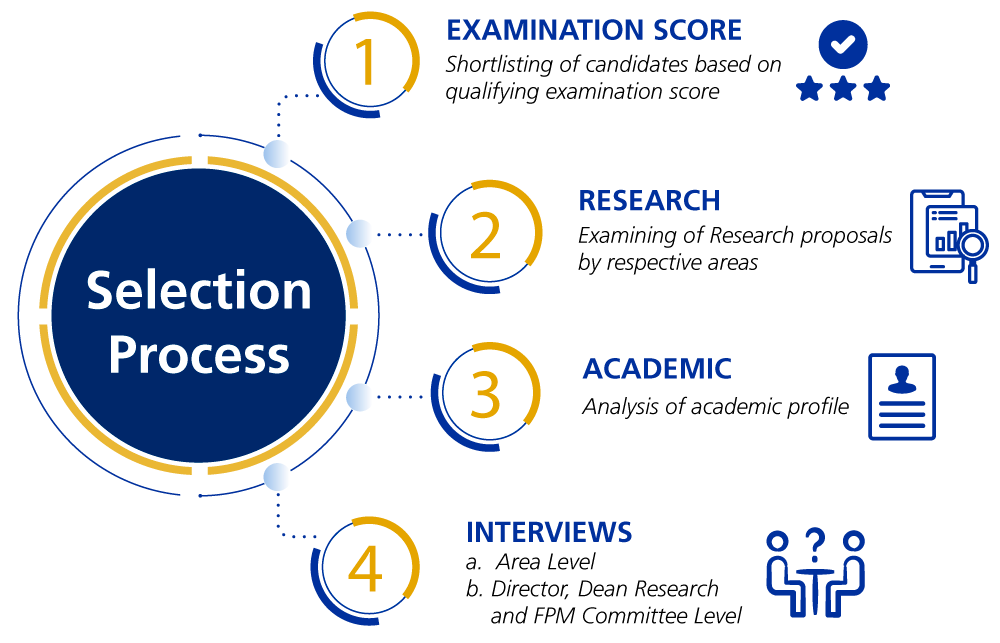
Learn more about Program
FAQs
Fellowship Program in Management Admissions
fpmadmissions@imt.edu
0120-4083447, 0120-4083306, 8368047592
Follow Us
